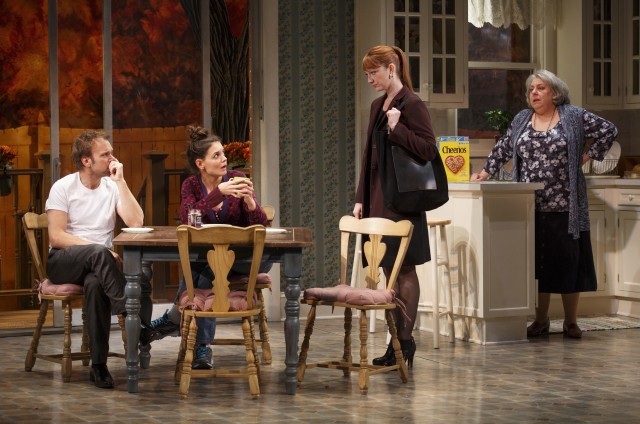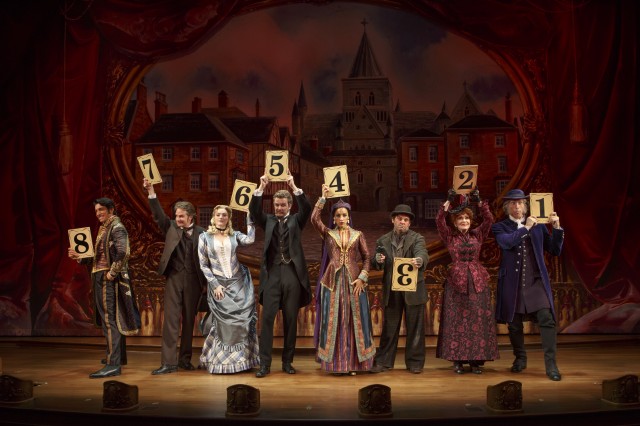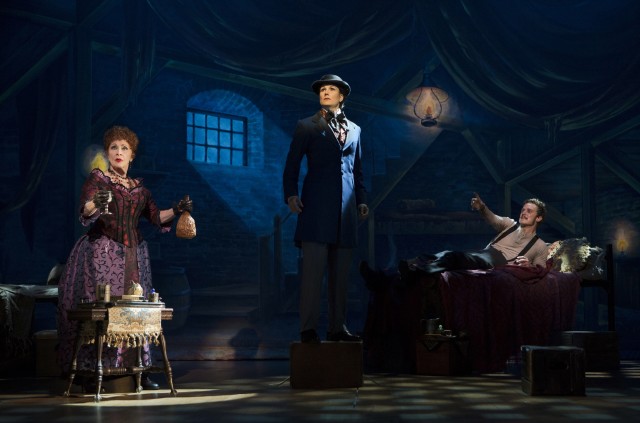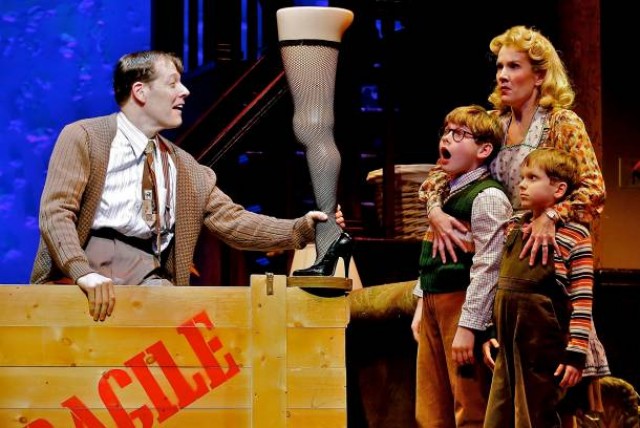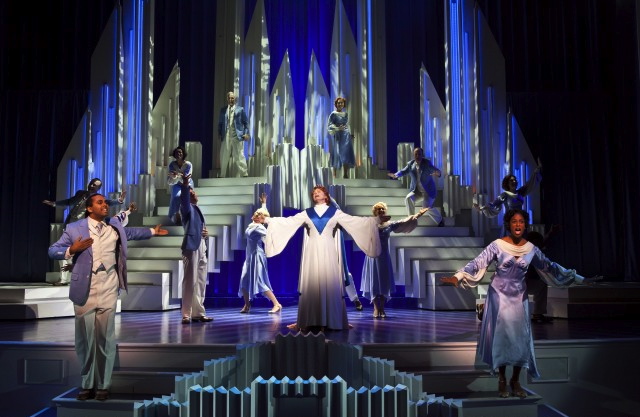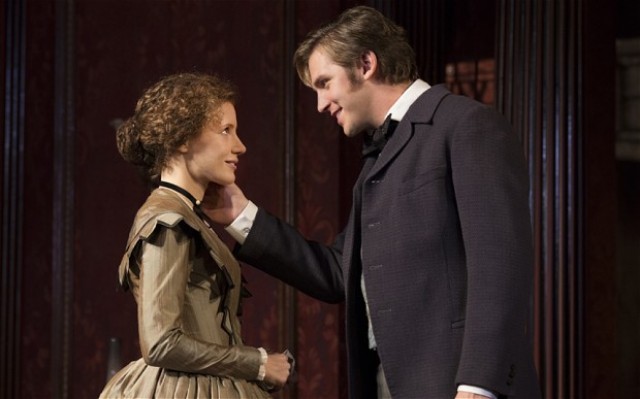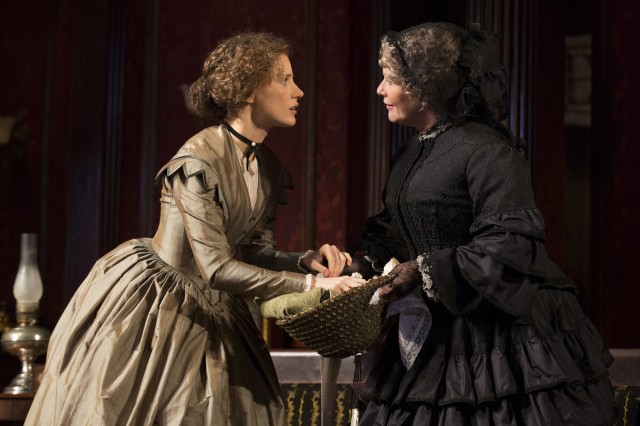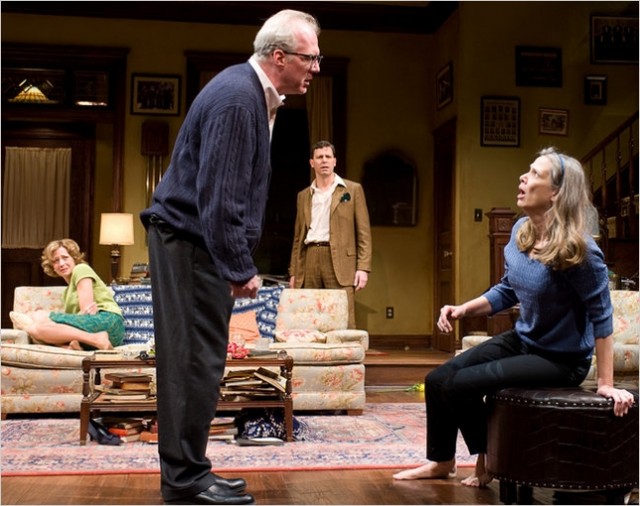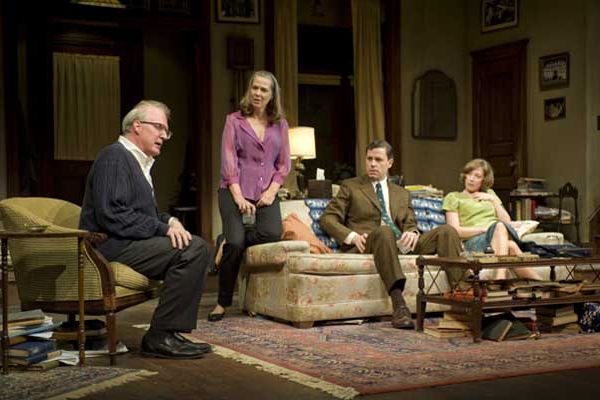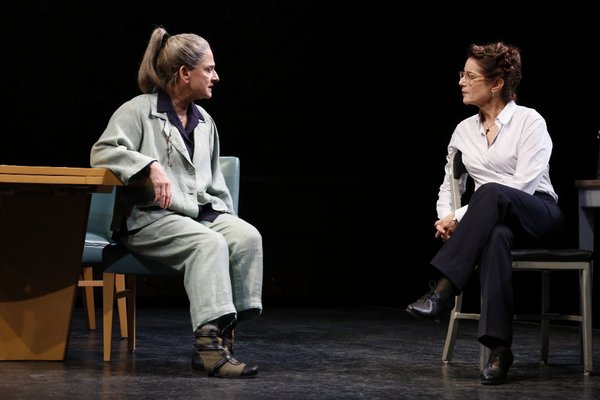
Cathy (Patti LuPone) and Ann (Debra Winger) play an intellectual game of cat-and-mouse in David Mamet’s THE ANARCHIST (photo by Joan Marcus)
Golden Theatre
252 West 45th St. between Broadway & Eighth Ave.
Through December 16, $70 – $134.50
www.theanarchistbroadway.com
Patti LuPone and Debra Winger might be extremely talented professionals, but it still has to be difficult to go on acting in a new Broadway play that announced, shortly after opening, that it would close early, after a mere twenty-three previews and seventeen regular performances. Written and directed by David Mamet (Race, Oleanna,) whose Glengarry Glen Ross is currently being revived down the street — and gives new meaning to its catchphrase, “Always be closing” — The Anarchist is essentially a seventy-minute intellectual debate between two very smart, edgy women. Mamet veteran LuPone (The Woods, State and Main) stars as Cathy, a former Weather Underground-type revolutionary who has converted to Christianity while serving a lengthy prison sentence and is now seeking to be released. Debra Winger (An Officer and a Gentleman, How I Learned to Drive), in her Broadway debut, plays Ann, a serious jailer who has thoroughly researched Cathy’s case and is not sure she is ready to be paroled. In a cold office setting, the convict and the bureaucrat battle it out in a war of words, discussing reason, revenge, religion, regret, revolution, and other topics as they play a tricky cat-and-mouse game that is overly clever for the Broadway stage. In addition, neither character is fully developed, and, more important, neither is very likable, making for a show that feels much longer than seventy minutes. Inspired by the post-9/11 world, the play has its fascinating moments, but it might have worked much better in a smaller theater without such a hefty ticket price ($70-$134.50), although it would still fail to be much of a story. “But the meaninglessness — let me be more precise — it was facing the meaninglessness which led me to faith,” Cathy says. “It led you to faith,” Ann responds. Cathy: “Because, do you see, they’re the same two choices.” Ann: “The same two as?” Cathy: “The bureaucrat and her make work files. To rebel. Or to submit. And each is unacceptable.” Ann: “Is there a third choice?” Cathy: “Thank you. And that is the essence of the book.” Ann: “That the third choice is Faith.” Cathy: “What else could it be? And to believe . . . in the possibility of another choice is to long for God. And to discover it is Faith.” Ann: “Faith without certainty.” Cathy: “If there were certainty, why would it be faith?” Mamet has a lot to say in The Anarchist, but far too much of it has to be taken on faith.
